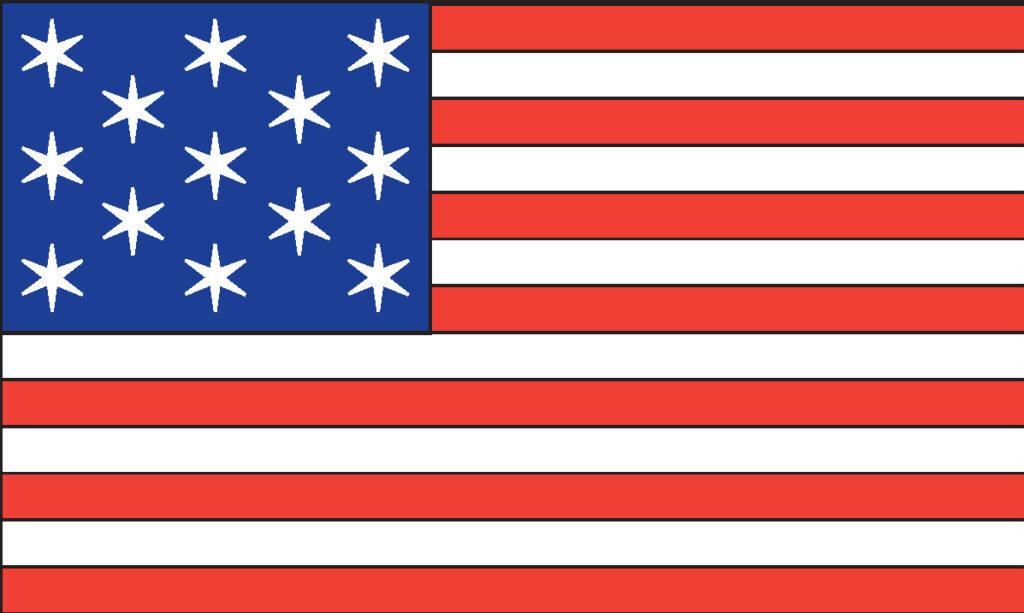The Constitutional Ratification Convention of Rhode-Island and Providence Plantations votes to ratify the Constitution for the united States (YEA, 34; NAY, 32)—with 18 provisions for a declaration of rights, numbers 1, 2, 3, 4, 6, 8, 9, 11, 12, 13, 14, 15, 16, and 17 of which state:
- “In That there are certain natural rights, of which men when they form a social compact, cannot deprive or divest their posterity, among which are the enjoyment of Life and Liberty, with the means of acquiring, possessing and protecting Property, and pursuing and obtaining happiness and safety.
- “That all power is naturally vested in, and consequently derived from the People; that magistrates therefore are their trustees and agents, and at all times amenable to them.
- “That the powers of government may be reassumed by the people, whensoever it shall become necessary to their happiness:- That the rights of the States respectively, to nominate and appoint all State Officers, and every other power, jurisdiction and right, which is not by the said constitution clearly delegated to the Congress of the United States or to the departments of government thereof, remain to the people of the several states, or their respective State Governments to whom they may have granted the same; and that those clauses in the said constitution which declare that Congress shall not have or exercise certain powers, do not imply, that Congress is entitled to any powers not given by the said constitution, but such clauses are to be construed as exceptions to certain specified powers, or as inserted merely for greater caution.
- “That religion, or the duty which we owe to our Creator, and the manner of discharging it, can be directed only by reason and conviction, and not by force or violence, and therefore all men, have an equal, natural and unalienable right to the free exercise of religion, according to the dictates of conscience, and that no particular religious sect or society ought to be favoured [sic], or established by law in preference to others.
- “That elections of representatives in legislature ought to be free and frequent, and all men having sufficient evidence of permanent common interest with, and attachment to the community ought to have the right of suffrage. …
- “That in all capital and criminal prosecutions, a man hath a right to demand the cause and nature of his accusation, to be confronted with the accusers and witnesses, to call for evidence and be allowed counsel in his favour [sic], and to a fair and speedy trial by an impartial jury of his vicinage, without whose unanimous consent he cannot be found guilty; (except in the government of the land and naval forces) nor can he be compelled to give evidence against himself.
- “That no freeman ought to be taken, imprisoned or disseised [sic] of his freehold, liberties, privileges, or franchises, or outlawed, or exiled, or in any manner destroyed or deprived of his life, liberty or property but by the trial by jury, or by the law of the land.
- “That in controversies respecting property, and in suits between man and man the antient trial by jury, as bath been exercised by us and our ancestors, from the time whereof the memory of man is not to the contrary, is one of the greatest securities to the rights of the people, and ought to remain sacred and inviolate.
- “That every freeman ought to obtain right and justice, freely and without sale, completely and without denial, promptly and without delay, and that all establishments or regulations contravening these rights, are oppressive and unjust.
- “That excessive bail ought not to be required, nor excessive fines imposed, nor cruel or unusual punishments inflicted.
- “That every person has a right to be secure from all unreasonable searches and seisures [sic] of his person, his papers or his property, and therefore that all warrants to search suspected places or seise [sic] any person, his papers or his property, without information upon oath, or affirmation, of sufficient cause, are grievous and oppressive, and that all general warrants for such in which the place or person suspected, are not particularly designated,) are dangerous, and ought not to be granted.
- “That the people have a right peaceably to assemble together, to consult for their common good, or to instruct their representatives; and that every person has a right to petition or apply to the legislature for redress of grievances.
- “That the people have a right to freedom of speech and of writing, and publishing their sentiments, that freedom of the press is one of the greatest bulwarks of liberty, and ought not to be violated.
- “That the people have a right to keep and bear arms, that a well regulated militia, including the body of the people capable of bearing arms, is the proper, natural and safe defence of a free state; that the militia shall not be subject to martial law except in time of war, rebellion or insurrection; that standing armies in time of peace, are dangerous to liberty, and ought not to be kept up, except in cases of necessity; and that at all times the military should be under strict subordination to the civil power; that in time of peace no soldier ought to be quartered in any house, without the consent of the owner, and in time of war, only by the civil magistrate, in such manner as the law directs. [emphasis added]
The Convention also proposed 21 amendments numbers 1, 2, 6, 7, 9, 12, 13, 14, 17, 18 and 20 of which state:
- “The United States shall guarantee to each State its sovereignty, freedom and independence, and every power, jurisdiction and right, which is not by this constitution expressly delegated to the United States.
- “That Congress shall not alter, modify or interfere in the times, places or manner of holding elections for Senators and Representatives. …
- “That no person shall be compelled to do military duty, otherwise than by voluntary enlistment, except in cases of general invasion. …
- “That no capitation or poll-tax shall ever be laid by Congress.
- “That Congress shall lay no direct taxes, without the consent of the legislatures of three fourths of the states in the Union.
- “As standing armies in time of peace are dangerous to liberty and ought not to be kept up, except in cases of necessity; and as at all times the military should be under strict subordination to the civil power, that therefore no standing army, or regular troops shall be raised, or kept up in time of peace.
- “That no monies be borrowed on the credit of the United States without the assent of two thirds of the Senators and Representatives present in each house.
- “That … Congress shall not declare war, without the concurrence of two thirds of the Senators and Representatives present in each house.
- “… [T]hat Congress shall … establish such laws … as may effectually prevent the importation of slaves … into the United States.
- “That the State Legislatures have power to recall, when they think it expedient, their federal senators, and to send others in their stead.
- “That Congress erect no company with exclusive advantages of commerce.
This makes Rhode-Island the 13th State and final to secede from the Confederation, and brings the balance, in the Senate, of free States and slave States to six free and seven slave.
[updated 12/21/2024]
Subsequent Events:
Authority:
Articles of Confederation, Article XIII
ccc-2point0.com/Articles-of-Confederation
Article VII, Section 1
ccc-2point0.com/constitution-for-the-united-states
References:
“Chronology of Events, 1774-1804,” from The Debate on the Constitution, two volumes, Bernard Bailyn, ed., (New York: Library of America, 1992), 2:1074.
Avalon Project – Ratification of the Constitution by the State of Rhode Island; May 29, 1790
avalon.law.yale.edu/18th_century/ratri.asp


